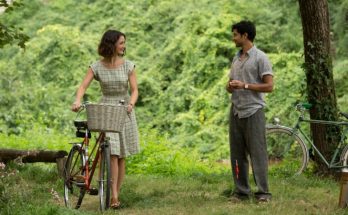To celebrate Haruki Murakami’s newest novel being released in Japan on April 12, AGI has compiled a special look back at the remarkable career of that country’s most famous and most reclusive writer leading up to this point.

He may be a household name in dozens of countries around the world, having been translated into over 40 languages, but how much do you really know about him?
Name: Haruki Murakami (or Murakami Haruki in Japanese name order, family name first)
Primary Occupation: Novelist (also short story and non-fiction writer; translator)
Age: 64 (born January 12, 1949 in Kyoto, Japan)
Everyone must have one thing that they can excel at. It’s just a matter of drawing it out, isn’t it? But school doesn’t know how to draw it out. It crushes the gift. It’s no wonder most people never get to what they want to be. They just get ground down – Haruki Murakami – Hard Boiled Wonderland and the End of the World
Career Highlights:
1969 Attends Tokyo’s Waseda University, majoring in Drama
1974 Opens coffeehouse/jazz bar with wife
1978 Gets the idea to write a novel while attending a baseball game in Tokyo
1979 Hear the wind singis published in Japan; English translation follows in 1987
” You keep looking at the sea and you start to miss being with people; you stay around people all the time and you just want to go look at the sea. “
Hear the Wind Sing
1982 Releases A Wild Sheep Chase,completing his ‘Rat trilogy’ and winning Noma Literary Prize
1985 Hard-Boiled Wonderland And The End Of The Worldtakes Tanizaki Prize
1986 Lives, and works at universities, in eastern USA
1987 Murakami achieves wider acclaim after Norwegian Wood sells millions of copies
Poster of Film Adaptation of the Novel
” It’s because of you when I’m in bed in the morning that I can wind my spring and tell myself I have to live another good day. “
Norwegian Wood
1993 The Elephant Vanishes is first collection of short stories translated into English
1995 Most respected novel, The Wind-Up Bird Chronicle, wins Yomiuri Prize; Murakami is also profoundly affected by Kobe earthquake and Tokyo subway gas attack, leading him to write two books on those subjects (one composed of short fiction called After the Quake; the latter, non-fiction interviews with victims and cult members titled Underground)
” The best way to think about reality, I had decided, was to get as far away from it as possible. “– Haruki Murakami, The Wind-Up Bird Chronicle
1996 Participates in first ultramarathon as a runner (Hokkaido, Japan)
2006 Wins Franz Kafka Prize; ironically, also World Fantasy Award for novel Kafka On The Shore
2007 Details his running life in What I Talk About When I Talk About Running (released in UK and US in 2008); also awarded Kiriyama Prize but refuses to accept it
2009 Receives Jerusalem Prize for the Freedom of the Individual in Society; also writes most ambitious novel yet, in three parts: 1Q84: Books 1 and 21Q84: Book 3
(a reference to Orwell’s 1984)
” Most people led minimal lives in worlds that had nothing to do with richness of perception or spirit. “– 1Q84
2010 Film adaptation of Norwegian Wood is released to lukewarm response
[youtube height=”HEIGHT” width=”WIDTH”]http://www.youtube.com/watch?v=KKiSoGj1hhM[/youtube]
Norwegian Wood by Haruki Murakami – Film trailer
2011 Donates nearly £70,000 to earthquake, tsunami and nuclear victims in Japan, criticizing Japanese government’s use of nuclear power
” I never once thought about how I was going to die,” she tells Miyake. “I can’t think about it. I do not even know how I am going to live. “– Landscape with Flatiron (After the Quake)
2012 Murakami’s books are removed from some bookshop shelves in China following anti-Japan demonstrations related to a territorial dispute between the two countries
2013 Japanese edition of novel loosely translated as The Colourless Tsukuru Tasaki and the Year of His Pilgrimage is highly anticipated despite limited info (release dates for other countries are sadly unclear at the time of publication)
By Tim Holm









